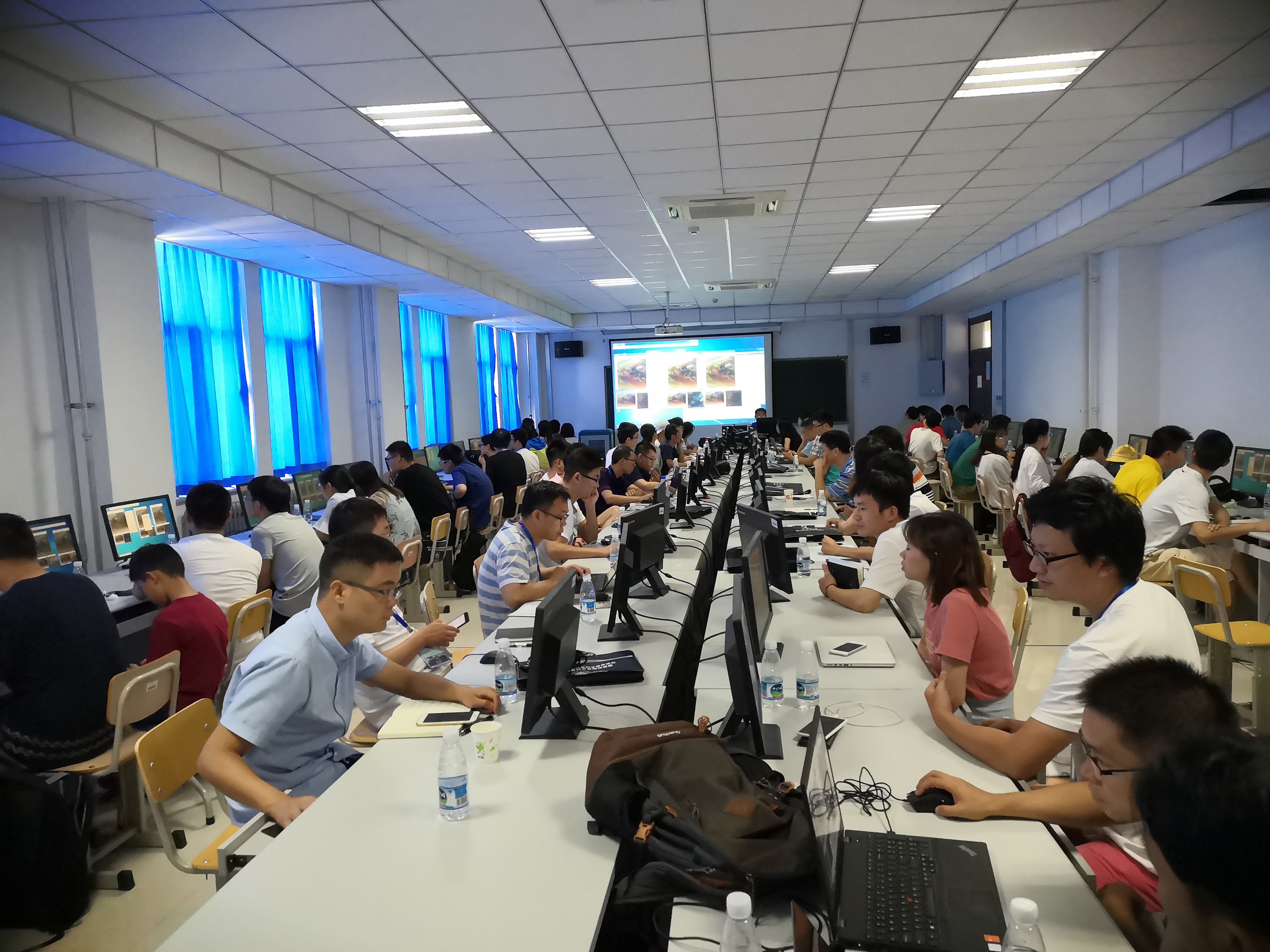From July 8th to 11th, 2019, the 4th Earth and Planetary Science Youth Forum (2019 Mars Science Summer School), which is hosted by the Youth Innovation Promotion Association of the Chinese Academy of Sciences (CAS) and co-organized by the Institute of Space Sciences, Shandong University and the Youth Innovation Promotion Association belonging to the Institute of Geochemistry (CAS), was held in Shandong University (Weihai). Prof. Lidong Xia, Vice President of Shandong University (Weihai), Prof. Wei Yang, Chairman of the Youth Innovation Promotion Association (CAS), and Prof. Xiongyao Li from Institute of Geochemistry (CAS), attended and gave welcoming speeches at the opening ceremony.
The four-day forum contains three sessions: academic reports, Mars scientific data processing training and geological field trip, all aiming to promote mutual exchanges between young scholars on martian science, strengthening the understanding of martian science and cultivate excellent young talents in martian science. In the academic report session, 17 experts working on Mars research and comparative planetological studies presented the scientific knowledges of the Mars exploration over the past 50 years, the latest research progress and the methods used in Mars scientific research, including the mapping and remote sensing, exploration payload design, environment simulation experiments, meteorites, terrestrial analogue sites, surface environment and atmospheric science, space environment and other scientific fields of Mars, etc. The Mars scientific data processing training course was conducted at the Planetary Data System (PDS) Laboratory of Shandong University, Weihai. Through the hands-on trainings, more than 60 students learned about the development of PDS system in Shandong University (Weihai) and data processing skills of visible to near-infrared and thermal infrared spectroscopic datasets from various Mars missions. In the end of forum, the participants also made a field trip to Cenozoic volcanic fields in Penglai area and gold mines at Zhaoyuan.
China's first Mars exploration mission plans to launch a probe in 2020 to achieve the "orbiting", "landing", and "roving" of Mars. This Mars science summer school provides a good communication platform for young scholars in the field of Mars research, inspires young scholars and graduate students to participate in the deep space exploration missions of China, as well as illustrates a cooperation paradigm for universities and institutes on planetary sciences in China in the future. More than 110 young scholars from 22 institutions including Institute of Geochemistry, Institute of Geology and Geophysics, Institute of Remote Sensing and Digital Earth, National Space Science Center, National Astronomical Observatories, Qinghai Institute of Salt Lakes, Xi'an Institute of Optics and Precision Mechanics, Shanghai Institute of Technical Physics, Guangzhou Institute of Geochemistry, Cold and Arid Regions Environmental and Engineering Research Institute, CAS, and China Academy of Space Technology, China University of Geosciences (Wuhan), Nanjing University, Peking University, Sun Yat-sen University, Macau University of Science and Technology, Hong Kong University, Northeastern University, Beijing Institute of Technology (Zhuhai), Shaanxi Normal University, Guizhou Institute of Technology, and Shandong University, participated in the forum.


